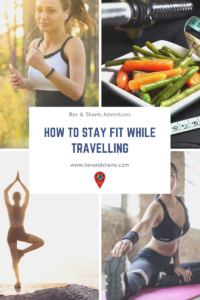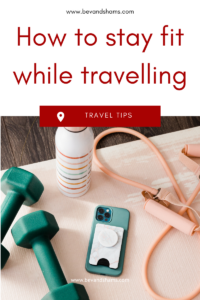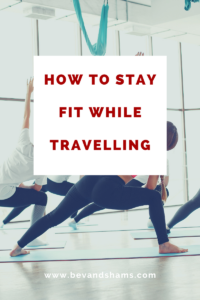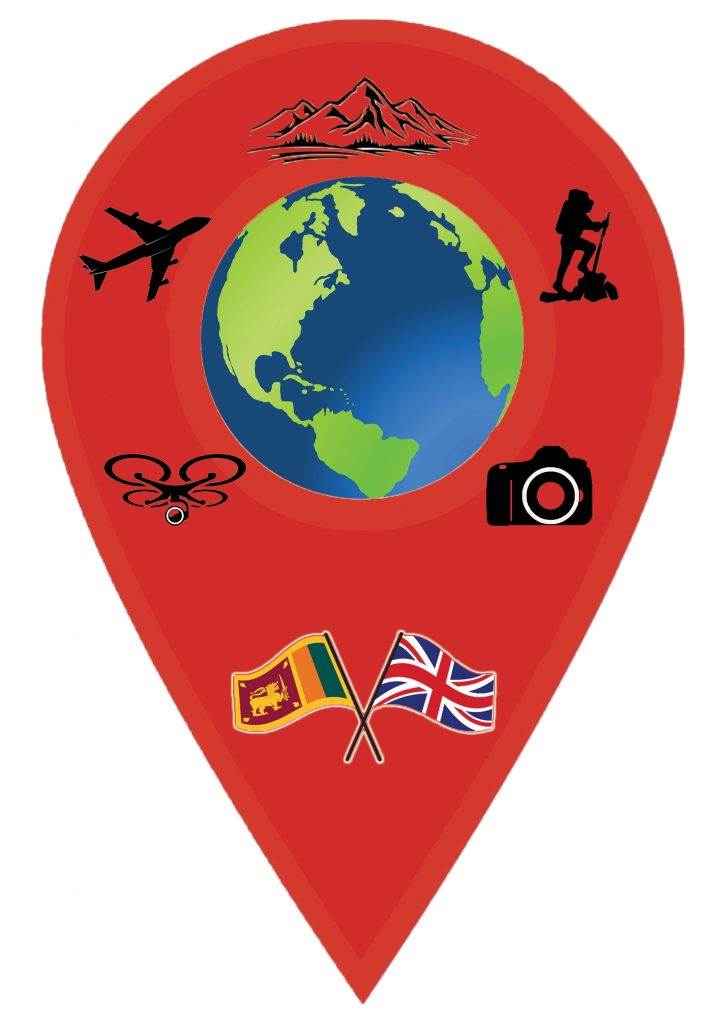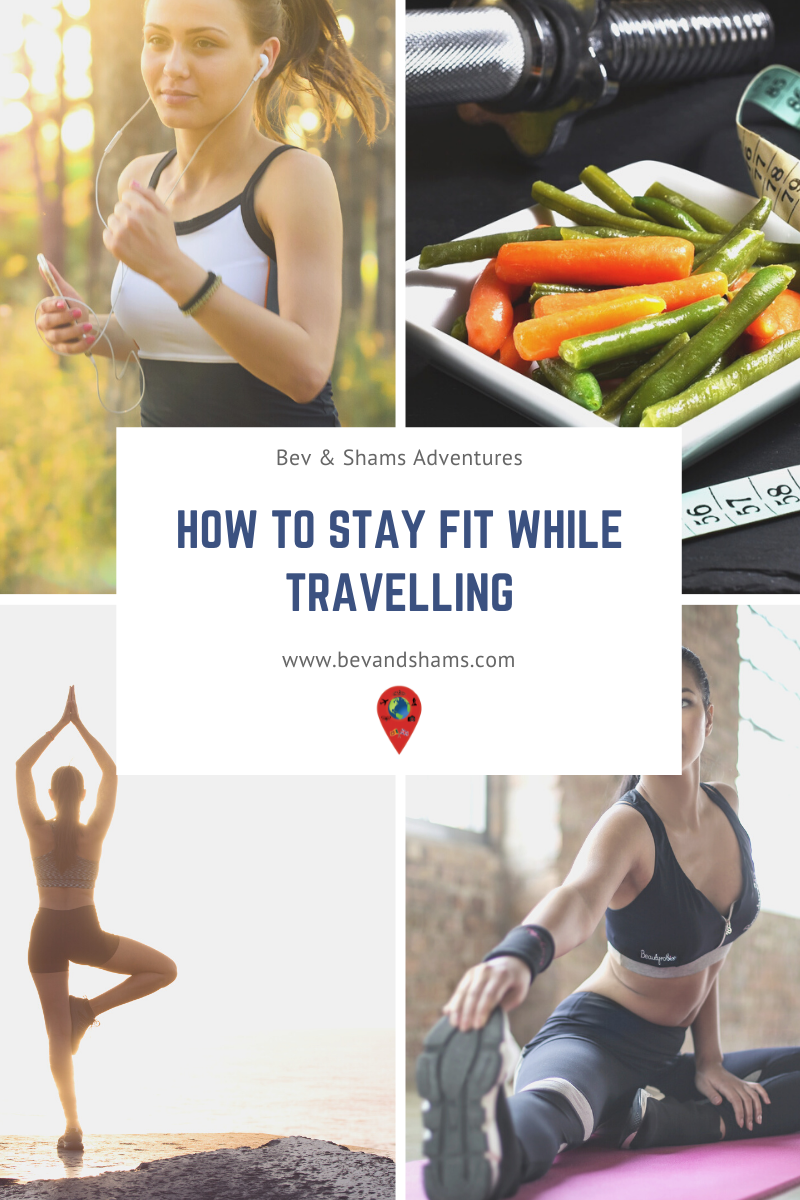10 Simple tips on how to stay fit while travelling
Traveling is a great way to explore new places and cultures, but staying fit while traveling can be challenging. Fitness is so important for both your physical and mental health.
What we find challenging, is the motivation to exercise while we are on holiday. Holidays are a time to relax and explore the surroundings, not fitting in exercise around our itinerary.
Although, if we don’t keep to a fitness routine, we do notice the difference and often feel the need to get a workout in. Which is completely possible with these 10 simple tips on how to stay fit while travelling.
Whether you’re on a business trip, traveling solo or going on holiday with family, you can stay active and healthy while you travel, without sacrificing your health and wellness.
Table of Contents
How to stay fit while travelling
We don’t want all that effort you put in to stay in shape, to be lost just because you’re travelling.
Utilize hotel facilities.
Some hotels have gyms or fitness facilities available for their guests and non-guests. Take full advantage of the gym or fitness centre and include a workout into your daily routine.
If the hotel doesn’t have a gym or fitness centre, ask reception if they have any partnerships with local gyms, fitness centres, or hotels that they can recommend.
Alternative, check out the nearby parks, trails or outdoor exercise classes.
Use bodyweight exercises in your hotel room.
When you don’t have access to a gym or outdoor space, your hotel room is an ideal gym area. You don’t need a lot of space to workout.
Bodyweight exercise, HIIT training or yoga can be a great way to stay fit while travelling.
You can do exercises like push-ups, squats, lunges, and planks in the comfort of your hotel room.
Look up bodyweight workouts online or download a fitness app for guided workouts. With a little creativity, you can get a full-body workout without ever leaving your hotel room.
We follow the Body Coach on YouTube, or use Nike Running Club and Training Club app. Both are free and easy to follow routines.
Exercising for as little as 15 minutes 3-4 times a week, will help you maintain your fitness.
Need some ideas on what workout’s you could do?
We have a few suggestions here:
HIIT workout
A HIIT workout is High Intensity Interval Training. These are short intense bursts at your highest maximum effort, with a short recovery or rest period, which is repeated for around 15-20 minutes or longer.
A Beginner may want to start with 20 seconds of high intensity and 40 seconds of rest, repeated.
An intermediate may start with 30 seconds high intensity with a 30 second rest, repeated.
While an advanced may start at 40 seconds high intensity with a 20 second rest, repeated.
A routine could look something like this:
1. Mountain climbers
2. Burpees
3. High knees run in place
4. Tuck jumps
5. Lunge jumps
Complete between 3-4 rounds of the above exercises, don’t forget to warm up and cool down before and after exercise.
Warm up and cool down will prevent injuries and get your heart rate raised. This workout will be tiring, but you will reap the benefits with staying fit while you travel.
Bodyweight workout
Weight training, or body weight training is just as important as cardio exercise, and you will want to include a mixture of both in your routines.
Body weights helps to build muscles, muscle definition, and will help with burning more body fat.
You can do body weight exercises just as a HIIT workout as above, or you can do rep-based workout.
A rep-based workout, would consist of doing 10 reps, resting for 30 seconds to 1 minute before repeating the reps for several rounds.
Body weight workout routine:
- Press ups
- Squats
- Lunges
- Walking plank
- Sit ups
Always make sure you do a warmup and cool down before and after your exercise routine, to prevent injuries.
Take advantage of outdoor activities.
One of the best ways to stay fit while traveling is to take advantage of outdoor activities. Whether it’s hiking, biking, swimming, or simply taking a walk around a new city.
Getting outside and moving your body is a great way to stay active and explore your surroundings.
Look up local parks or nature reserves in the area and plan a day trip or find a nearby beach or lake for some water activities.
Not only will you be getting exercise, but you’ll also be able to experience the local culture and scenery in a unique way.
Walk or bike instead of taking transportation.
One of the best ways to stay fit while traveling is to incorporate physical activity in the form of walking or cycling.
Instead of taking a taxi or public transportation, consider walking or biking to your destination.
This not only helps you burn calories and stay active, but it also allows you to explore your surroundings, experience the local culture and visit some hidden gems, that’s away from the tourist spots.
There are a few places such as Amsterdam and Oxford, that’s ideal for walking or cycling the city.
Plus, walking is free, which will save you money on transportation costs and keep you within a budget. Just be sure to wear comfortable shoes and be alert in unfamiliar surroundings.
Eat the right food
Not only will travel disrupt your exercise routine, but it can also cause you to change your eating habits.
We tend to overindulge on holiday.
But if you want to stay in shape while you travel, then you also need to think about the food you consume.
Breakfast is the most important meal of the day; it fuels your body and gives you enough energy to kick start your day.
Choosing the right food at breakfast will keep you going until your next meal.
Eating a balanced diet should consist of protein, carbohydrates and fibre.
Utilise the breakfast at your hotel, if it is included in your booking. Alternatively buy your breakfast from the local supermarket, or café.
For breakfast you should be choosing food that’s good for you, such as healthy cereals, for example oats, muesli and fruit. Try and avoid sugary cereal, or cereal that has added sugar.
Protein is great for repairing muscle. Eggs, sausages and bacon are great protein options, if a hot breakfast is preferred.
Try avoiding fried food, as this isn’t good for you and only eat this on occasions, as a balance diet is key.
We would recommend boiled eggs, or scrambled eggs for breakfast with a slice of toast.
Carbohydrates provide energy to help you through until your next meal. Making a sandwich or scrambled eggs or poached eggs on toast for breakfast, is a perfect balance of protein and carbohydrates.
Eating little and often, is great for maintaining a healthy diet. Having a healthy snack between your main meals, will continue to provide you with energy, as the day goes on.
Slow releasing foods such as nuts and fruit are great, as they will give your body energy that it needs to keep it going.
Bananas are a great source of energy and forms part of your 5 a day.
At lunch or dinner, if you have had a long day walking, hiking or exercising, you should eat a good meal consisting of carbohydrates and protein. Carbohydrate replaces the energy you have lost throughout the day and the protein will help rebuild and strengthen muscles.
A big part of eating and staying fit and healthy, also comes down to how much food you eat.
If you eat too much food and not enough exercise, this is what causes weight gain. Not eating enough and too much exercise will cause weight loss, but losing weight incorrectly is not good for you.
Eating the right balance of food and consuming the correct amount will keep you healthy.
Listen to what your body is telling you and adjust your food consumption accordingly.
Depending on several factors, it is recommended that 2000 calories intake for a female and 2500 calories intake for male.
Here is an example of what we might eat depending on our activities:
Day by the pool:
Breakfast – a light breakfast of cereal, fruit, yoghurt, and an egg. If there are no plans for exercise, we will reduce the amount of food consumption, as we won’t be using as much energy compared to if we were out for the day walking, or hiking.
Snack – fruit
Lunch – A meal that would contain protein, a small portion of carbohydrates to give us some energy and vegetables
Snack – nuts
Evening meal – Something light with protein and vegetable, again we would reduce the amount of carbohydrates intake as the lunch time meal should have given us enough
Active day sightseeing, walking or hiking:
Breakfast – As we are having an active day walking, hiking and sightseeing, we would have cereal, fruit, yoghurt, protein and toast to give us some energy
Snack – fruit, nuts, and an energy bar.
Lunch – A large meal consisting of protein, carbohydrates, and vegetables
Snack – energy bar, or a fruit and nut bar.
Evening meal – something a little lighter but with protein, carbohydrates, and vegetable
Consuming the right food, will help you maintain your fitness and health while travelling.
Rest
It’s important to prioritize rest, exercise, and a balanced diet.
Resting is just as crucial as working out and eating well. Taking breaks and allowing your body to recover and repair muscles after exercise is essential.
It’s recommended to have 3-4 days of rest each week to maintain your fitness and overall health while on the go.
Sleep
Travelling is not only tiring but can make you feel lethargic. Try and adjust to the new time zone, with sleeping, as this will help heal your tired muscles and recovery.
It’s recommended to get about 8 hours sleep per night, depending on the person. Some people can live on about 5 hours or less sleep, while others may need 9 plus hours sleep.
I need about 8 hours sleep per night, to really feel recharged, alert and for my body to be ready for the day.
I often find, after a long day sightseeing, hiking or just flying, that by the end of the day, I am about to crash out. When this happens, I will make sure I am in bed early, to get enough sleep.
Drink plenty of water
Did you know that our body is made up of 60% water!
Drinking plenty of water keeps us hydrated, helps transport nutrients to give us energy, helps with digestion, keeps us healthy and many more health benefits.
But travelling, especially flying can make us dehydrated. We should be consuming more water while we travel and after exercise.
Daily consumption of water should be about 2 litres a day. This will depend on the person and weather conditions.
In hot climates, you should be consuming more water, but in cooler climates, you may not drink as much as 2 litres.
When we visit Sri Lanka, we’ll drink around 2½ litres to sometimes 3 litres a day, due to the hot climates, but when we are at home in the UK, we will drink between 1½ to 2 litres a day.
Whether you have exercised or not, travelling can cause dehydration, which can be serious and can lead to hospitalisation.
Pack in your hand luggage a reusable water bottle, that you can fill up in your hotel, in a pub or a local restaurant or café.
So don’t forget to drink, drink, and drink.
Include fitness in your travel itinerary
Whether you prefer to exercise in the morning to kick start your day, or of an evening, keep to that routine and include it in your travel itinerary.
All you need is 15-20 minutes 3-4 days a week.
We prefer to exercise first thing in the morning, to kick start our day, before heading for breakfast and then out sightseeing, but this does require an early start to get out early.
Top tip: Exercise classes
Get involved with a local exercise class, such as yoga, or a walking club/running club. Some classes are free and a great way to get to know some of the locals.
Walking tours are another great way to get in your steps while learning more about the history and culture of a city.
Some cities offer free walking tours, which is great for any budget traveller.
Anytime we visit a city, we will always book onto a walking tour. In our experience, the guide offers knowledgeable information along the way. It’s not only a great way to stay fit while travelling, but a way to navigate an unfamiliar city, with an experienced guide.
Bonus tip: Use the pool facilities
Some hotels will offer swimming pool facilities to their guests and non-guests.
Take advantage of the facilities, with a few lengths of the pool.
If your hotel doesn’t have a pool, check before you travel to find out if other hotels in the area have pool facilities for non-guests, or swimming facilities at a local sports centre.
Swimming is a great way to stay fit, with less impact on the body.
Each time we visit Sri Lanka, most of our rest days will be beside Cinnamon Lakeside pool. They allow non guests to pay a small fee to use the pool facilities.
The pool is very big, with sun loungers dotted around the pool and under the trees. The size is ideal for a dip in the cool water or swimming some lengths.
Conclusion
We both love to stay fit and healthy and while we might be travelling, we are always conscious of what food we consume and the amount of exercise we do.
We will try and exercise at least 3 times a week. If our day includes walking or hiking, then a workout in the morning or evening isn’t necessary. If we have a lazy day by the pool, we will include a workout or a couple of laps of the pool.
By following these few simple tips on how to stay fit while traveling, you’ll no longer find it a challenge.
How do you stay fit while travelling? Are there any workouts that you do while on holiday? Are you conscious of what you eat while travelling? Is there anything you think we have missed, that we should have included? Do you not think about staying fit and healthy when you travel? Let us know by leaving a comment below.
Continue your travel planning, with these useful posts
- Top tips on how to travel on a budget
- What to pack for a weekend holiday
- How to survive a long layover
- Tips for first timer travellers
- Gift ideas for all travellers
- Pros & Cons of travel insurance
- Best virtual tours – Free travel
- What to pack in your beach bag
- What to pack in your hand luggage
- Best travel backpacks to purchase in 2024
